Charles III inherits a United Kingdom with regional tensions and waning influence in the world
Nationalism in Scotland and Northern Ireland threatens the stability of the new monarch’s reign

In April 1947, as she celebrated her 21st birthday, then-Princess Elizabeth delivered an address in Cape Town, South Africa, that the BBC broadcast from halfway around the world. In it, she promised to devote her entire life “to the service of the great imperial family to which we all belong.” Four months later, her father, George VI, solemnly renounced his title of Emperor of India and prepared to lead the newly invented Commonwealth (Community of Nations), in order to preserve the crumbling British empire’s connections for as long as possible. In historical terms, Queen Elizabeth’s death marked the end of the British 20th century. She was the last vestige of a past that, to this day, has at best nurtured an innocent nostalgia and at worst stoked a divisive and isolating nationalism in the United Kingdom. Charles III inherits a country that is divided by nationalist tensions and has markedly less influence in the world because of Brexit.
“Her death marks the second act of a national realignment, the first of which was the UK’s departure from the European Union. Historical periods rarely obey the strict discipline of the calendar and the long 20th century in Britain will surely be said to come to an end in 2022. The death of such a long-serving monarch leaves a nation unsure of its place in the world,” Phil Collins, a brilliant political analyst who penned some of former Prime Minister Tony Blair’s best speeches, wrote in the New Statesman.
The British establishment has been quick to shout God Save the King and to ensure a quick and smooth succession process. The success of the new reign would be a welcome sign that things are not going as badly as some critics would like to claim. “He is a very intelligent man, who has a very human streak and an enormous sense of duty. His first speech suggests that Charles understands the challenges he faces, and I am confident that he will successfully overcome them,” Jonathan Sumption, a former Supreme Court judge and a voice to whom the British media pays careful attention, tells EL PAÍS. “He doesn’t have the advantage of youth, which was fundamental when Elizabeth II became the queen in 1952 [she was 25 at the time], and many will never forgive him for his separation from Diana Spencer, which is unfair but inevitable. He will certainly have to abandon some of his pet causes, especially climate change, which have recently become the subject of more political debate,” Sumption says.
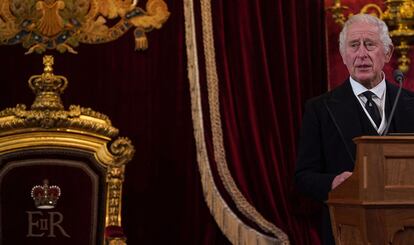
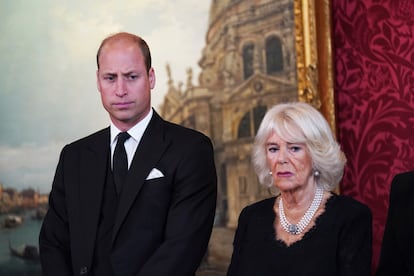




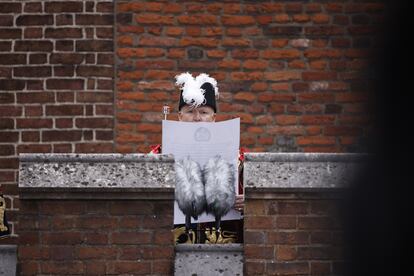

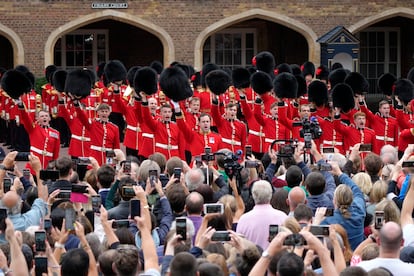
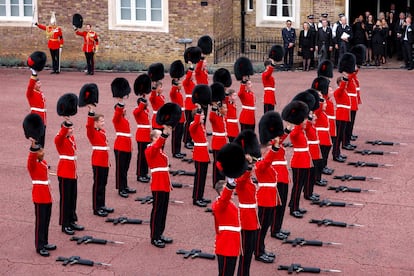
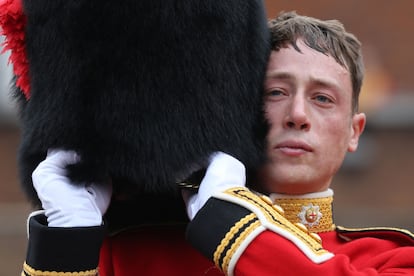

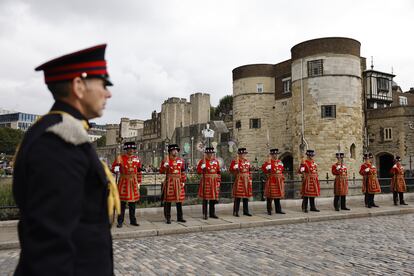

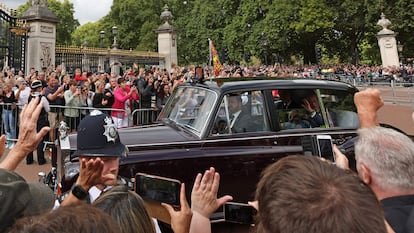
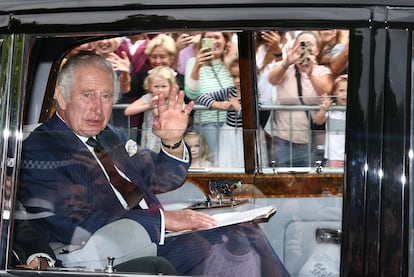
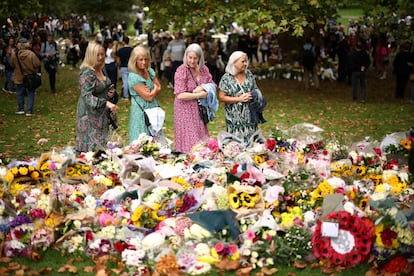
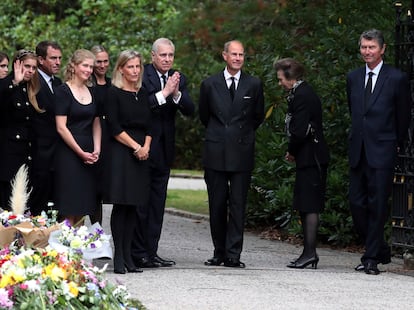
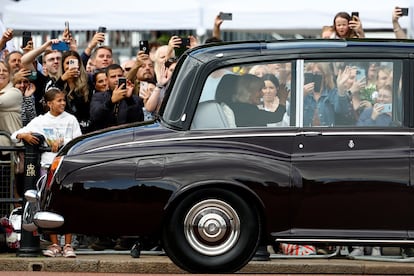
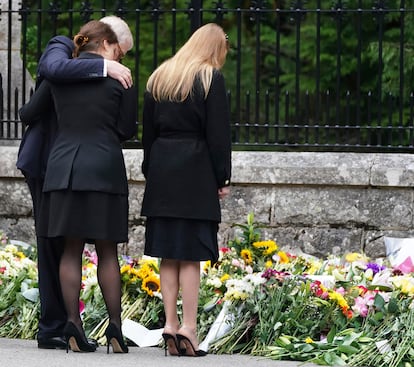
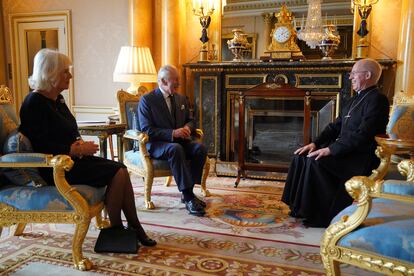
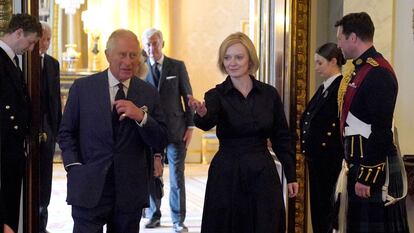
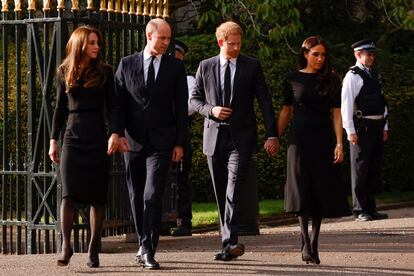
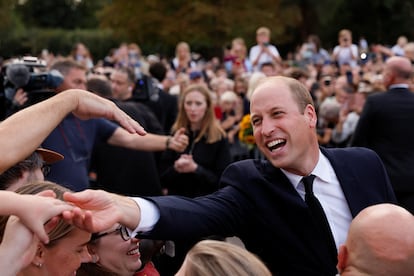

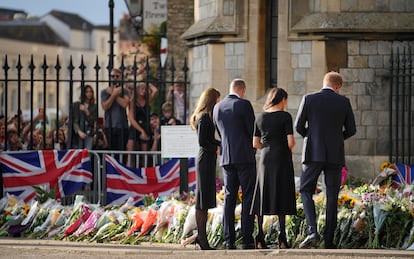
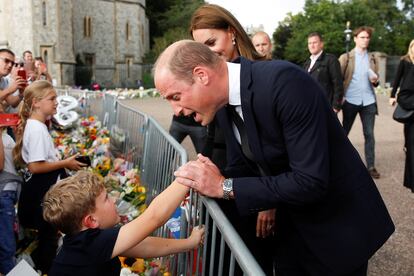
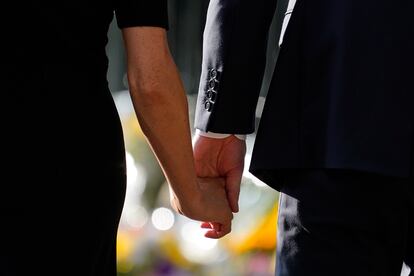
The problem for Charles III is that his new status as king forces him to do precisely what his mother did to gain every citizen’s respect: nothing. Elizabeth II was the one constant in a country that experienced countless changes. It was precisely her neutrality and silence that led many Britons to believe that she reflected their country’s best qualities. As Winston Churchill, the Prime Minister when Queen Elizabeth II began her reign, explained, when a battle is lost, the people shout, “Down with the Government!” and when it is won, “Long live the Queen!”
Queen Elizabeth grew older at the same pace as the country over which she reigned. During World War II, she wore a uniform, and - in the symbolic way that royals do such things - she shared the hardships that the population was experiencing at the time. She lived through post-war shortages, the United Kingdom’s rebirth and its economic and cultural influence throughout the world (The Beatles and the [Rolling] Stones, as well as the Sex Pistols), the country’s entry into what was then called the European Economic Community, and the evolution of many of the empire’s countries, which she visited during her reign. Nelson Mandela had a very special relationship with the Queen and called her motlalepula (“the one who comes with the rain”), a reference to her 1995 visit; he was the president of South Africa at the time, and the country experienced its best rainy season in years.
The Queen did all that while conveying the image of a very homey, familiar person, who was almost boring in her hobbies, habits, and love for the countryside, horses and dogs. “Being ordinary and extraordinary at once. The queen seemed like one of us, although, objectively and obviously, she was not remotely like us,” as pro-Scottish independence political essayist Tom Nairn wrote in The Enchanted Mirror, his masterful work on the relationship that Britons have with the monarchy.
It’s worth noting that, so far, Scotland’s nationalists, led by First Minister Nicola Sturgeon, have understood their desire for independence as perfectly compatible with continuing to have Elizabeth II as their queen. It’s not clear that the young Scots attracted to the idea of secession will accept Charles III in the same way.

Danny Dorling, the author of a brilliant book on the nostalgic eagerness behind Brexit, Rule Britannia, prefers not to express his opinion [on the fate of the British monarchy] during a mourning period. However, he does advise taking a look at the latest polls, particularly the one from YouGov, which shows that only 24% of people aged 18-24 believe the institution of the monarchy is good for the country, compared to 67% of those 50-64 years old.
Charles III ascends to the throne at 73 years old. He cannot change the fact that the country is divided from within and isolated from Europe because of Brexit. The UK is threatened by serious fractures in the Union, ranging from the Scottish desire for independence to the tensions in Northern Ireland, where reunification with the Republic of Ireland seems increasingly likely.
Queen Elizabeth II in the world
While the impact of Queen Elizabeth’s death is most obvious and significant domestically, there will be international ramifications as well. Only time will tell how serious they are.
To begin with, Queen Elizabeth represented a soft power “asset” for London. It’s difficult to quantify what tangible benefits such power affords generally or in this specific case. But it’s reasonable to believe that Queen Elizabeth’s global stature allowed the United Kingdom to enjoy special influence through her personal relationships. Her historical trajectory put her in an almost unparalleled position to command respect, attraction and goodwill. For example, amidst the brutal confrontation between the UK and Russia that’s been worsening for years, even Vladimir Putin sent a thoughtful letter expressing his condolences. Of course, that has to do with a monarch’s apolitical stance, but it also speaks to the way Queen Elizabeth played her role.
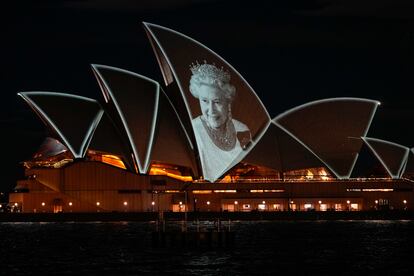
Beyond world leaders, at the level of public opinion, Elizabeth II’s considerable global popularity represented an asset for the United Kingdom’s image. She acquired pop appeal, largely as a result of factors beyond her control, but also partly because of some of Buckingham Palace’s very well-designed communication strategies. For example, the 2012 film montage that had James Bond take the Queen to London’s Olympic Stadium by helicopter and parachute into the games’ opening ceremony with her captivated a global audience of hundreds of millions of viewers.
Her personal clout is probably an important reason why the British monarch remains the head of state in 14 other Commonwealth countries. Australia, one of those countries, was the site of London’s greatest global post-Brexit success: the AUKUS alliance, which is an important military and industrial pact of the two countries and the United States. Now, there’s the possibility that Charles’s diminished prestige could bolster movements questioning the British monarch’s place as the head of state in some Commonwealth countries, like Canada, for example.
Beyond the United Kingdom and its international relations, Queen Elizabeth’s death is also a loss for constitutional monarchies, a form of government she symbolized. In a sense, she was the standard-bearer for such states. Some of the world’s most advanced democracies, like Sweden, Norway, Denmark, Holland and Japan, are constitutional monarchies, but none of the sovereigns have the global reach that Elizabeth II did. In addition, there are scandals in several royal houses – in Spain, for example – that are eroding how people view that model of government.
Tu suscripción se está usando en otro dispositivo
¿Quieres añadir otro usuario a tu suscripción?
Si continúas leyendo en este dispositivo, no se podrá leer en el otro.
FlechaTu suscripción se está usando en otro dispositivo y solo puedes acceder a EL PAÍS desde un dispositivo a la vez.
Si quieres compartir tu cuenta, cambia tu suscripción a la modalidad Premium, así podrás añadir otro usuario. Cada uno accederá con su propia cuenta de email, lo que os permitirá personalizar vuestra experiencia en EL PAÍS.
¿Tienes una suscripción de empresa? Accede aquí para contratar más cuentas.
En el caso de no saber quién está usando tu cuenta, te recomendamos cambiar tu contraseña aquí.
Si decides continuar compartiendo tu cuenta, este mensaje se mostrará en tu dispositivo y en el de la otra persona que está usando tu cuenta de forma indefinida, afectando a tu experiencia de lectura. Puedes consultar aquí los términos y condiciones de la suscripción digital.








































